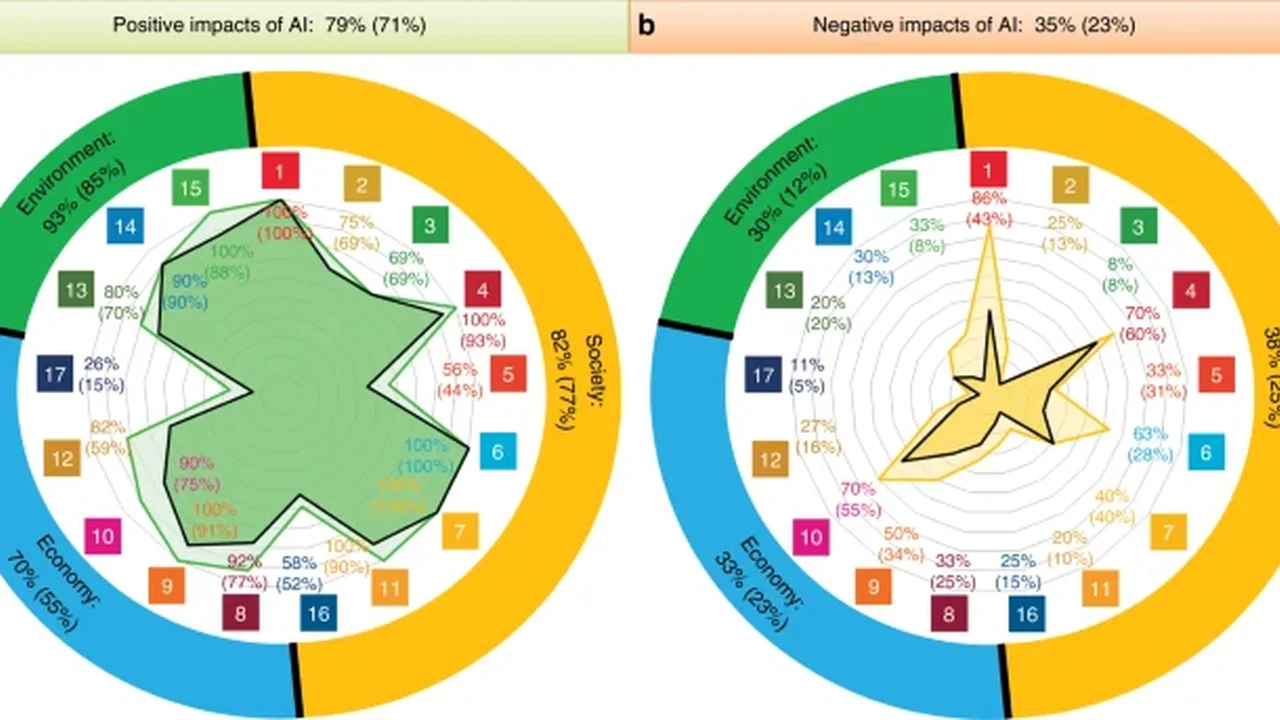AI Conferences: Attend the Top AI Events

meta description: Follow the top AI experts and thought leaders by reading AI blogs. This article provides a list of recommended AI blogs. Stay informed about the latest trends and insights in AI.
Top AI Blogs for Staying Updated on Artificial Intelligence
Artificial Intelligence is rapidly transforming our world, impacting industries from healthcare to finance and beyond. Staying up-to-date on the latest advancements, trends, and ethical considerations is crucial for anyone interested in this field. One of the best ways to do this is by following leading AI blogs. These blogs offer a wealth of information, ranging from in-depth research analysis to practical application advice and expert opinions. Let's dive into some of the top AI blogs you should be reading.
AI Research Blogs Delving into the Deep End of Artificial Intelligence
For those interested in the cutting edge of AI research, these blogs offer insights into the latest scientific breakthroughs and advancements in algorithms, models, and techniques.
Distill
Distill is not your typical blog; it's a journal dedicated to clear explanations of machine learning concepts. They focus on interactive visualizations and well-written articles that make complex ideas accessible. Expect high-quality, peer-reviewed content that goes beyond surface-level explanations. This blog is perfect for anyone who wants a deeper understanding of the underlying principles of AI.
Why follow Distill? Interactive visualizations, peer-reviewed content, focus on clarity and deep understanding of ML concepts.
OpenAI Blog
OpenAI is a leading AI research organization, and their blog offers a direct line to their groundbreaking work. You'll find announcements of new models, research papers, and insights into their approach to AI safety and development. This is a must-read for anyone interested in the future of AI and the challenges of building beneficial AI systems.
Why follow OpenAI Blog? Direct access to OpenAI's research, insights into AI safety, announcements of new models.
Google AI Blog
The Google AI Blog is another excellent resource for staying informed about the latest research coming out of Google's AI labs. You'll find articles on a wide range of topics, from natural language processing and computer vision to robotics and reinforcement learning. The blog often highlights the practical applications of AI research in Google products and services.
Why follow Google AI Blog? Insights into Google's AI research, practical applications of AI, diverse range of AI topics.
DeepMind Blog
DeepMind, acquired by Google, is known for its groundbreaking work in areas like reinforcement learning and game-playing AI (AlphaGo). Their blog features articles on their latest research, as well as discussions about the ethical and societal implications of AI. It's a great place to learn about the potential of AI to solve complex problems.
Why follow DeepMind Blog? Cutting-edge research in reinforcement learning, insights into game-playing AI, discussions about AI ethics.
AI Industry Blogs Staying Ahead of the Curve in the AI Business World
These blogs focus on the business side of AI, providing insights into market trends, investment opportunities, and the adoption of AI technologies across various industries.
VentureBeat AI
VentureBeat AI covers the latest news and trends in the AI industry, with a focus on startups, funding rounds, and the impact of AI on different sectors. They offer a comprehensive overview of the AI landscape and are a valuable resource for investors, entrepreneurs, and business professionals.
Why follow VentureBeat AI? Comprehensive coverage of AI industry news, focus on startups and funding, insights into the impact of AI on different sectors.
Forbes AI
Forbes AI features articles on the business and societal implications of AI, written by industry experts and thought leaders. You'll find insights into how AI is transforming businesses, creating new opportunities, and raising ethical questions. This is a good source for a broad perspective on the AI revolution.
Why follow Forbes AI? Broad perspective on the business and societal implications of AI, articles by industry experts, insights into AI's transformative power.
The Batch by Andrew Ng
Andrew Ng, co-founder of Coursera and Google Brain, shares his insights on AI in his weekly newsletter, The Batch. He covers a wide range of topics, from the latest research to the business applications of AI and the challenges of building a responsible AI ecosystem. This is a must-read for anyone who wants to learn from one of the leading figures in AI.
Why follow The Batch by Andrew Ng? Insights from a leading AI expert, coverage of research, business applications, and responsible AI, weekly newsletter format.
AI Practical Application Blogs Gearing Up to Implement AI Solutions
These blogs offer practical advice and tutorials on how to build and deploy AI solutions, using popular tools and frameworks like TensorFlow, PyTorch, and scikit-learn.
Towards Data Science
Towards Data Science is a Medium publication that features articles on a wide range of data science and AI topics, from introductory tutorials to advanced research. You'll find practical guides on how to use different AI tools and techniques, as well as discussions about the ethical considerations of data science.
Why follow Towards Data Science? Wide range of data science and AI topics, practical tutorials and guides, discussions about ethical considerations.
Machine Learning Mastery
Machine Learning Mastery, run by Jason Brownlee, offers a wealth of tutorials and resources for learning machine learning. He focuses on practical, hands-on examples and provides clear explanations of complex concepts. This is a great resource for beginners who want to get started with machine learning.
Why follow Machine Learning Mastery? Practical, hands-on examples, clear explanations of complex concepts, focus on beginners.
Analytics Vidhya
Analytics Vidhya provides articles, tutorials, and courses on a wide range of data science and analytics topics. They cover everything from basic statistics to advanced machine learning techniques. This is a valuable resource for anyone who wants to improve their data science skills.
Why follow Analytics Vidhya? Wide range of data science and analytics topics, tutorials, articles, and courses, focus on skill development.
Specific AI Products and Their Use Cases
Beyond general blogs, let's look at some specific AI products and the blogs or resources associated with them, providing deeper dives into specific use cases and comparisons.
TensorFlow
TensorFlow is a popular open-source machine learning framework developed by Google. The TensorFlow Blog offers updates on new features, tutorials, and case studies of how TensorFlow is being used in various industries. It's essential for staying current with best practices and new capabilities.
Use Cases: Image recognition, natural language processing, time series analysis, predictive analytics. TensorFlow is used in everything from self-driving cars to medical diagnosis.
Product Comparison: TensorFlow vs. PyTorch. TensorFlow is often favored for production deployments due to its scalability and robust ecosystem. PyTorch, on the other hand, is often preferred for research and rapid prototyping due to its more Pythonic interface and dynamic computation graph.
Pricing: TensorFlow itself is open-source and free to use. However, deploying TensorFlow models in the cloud can incur costs depending on the cloud provider and the resources used (e.g., Google Cloud Platform, Amazon AWS, Microsoft Azure).
PyTorch
PyTorch is another leading open-source machine learning framework, widely used in research and academia. The PyTorch Blog provides updates on research, new features, and community contributions. It's a great way to stay informed about the latest developments in the PyTorch ecosystem.
Use Cases: Natural language processing, computer vision, generative models, reinforcement learning. PyTorch is particularly well-suited for research and experimentation.
Product Comparison: As mentioned above, PyTorch is often preferred for research due to its flexibility and ease of use. It also has a strong community and a growing ecosystem of tools and libraries. While TensorFlow is often seen as more mature for production, PyTorch is rapidly closing the gap.
Pricing: PyTorch is also open-source and free. Deployment costs are similar to TensorFlow, depending on the cloud provider and resources used.
scikit-learn
scikit-learn is a popular Python library for classical machine learning tasks. While scikit-learn doesn't have an official blog, the examples gallery on their website is an excellent resource for learning how to use the library for various tasks.
Use Cases: Classification, regression, clustering, dimensionality reduction, model selection. scikit-learn is a versatile library for a wide range of machine learning problems.
Product Comparison: scikit-learn is a good choice for smaller datasets and simpler models. For larger datasets and more complex models, TensorFlow or PyTorch may be more appropriate.
Pricing: scikit-learn is open-source and free to use. It's often used in conjunction with other Python libraries like NumPy and pandas.
Hugging Face
Hugging Face is a company focused on natural language processing (NLP). They provide a wide range of pre-trained models, tools, and libraries for NLP tasks. Their Hugging Face Blog is a great resource for learning about the latest advancements in NLP and how to use Hugging Face's tools.
Use Cases: Text classification, sentiment analysis, question answering, text generation, translation. Hugging Face's models are widely used in chatbots, search engines, and other NLP applications.
Product Comparison: Hugging Face's Transformers library provides a unified interface for using a wide range of pre-trained models, making it easy to experiment with different architectures. They also offer a model hub where users can share and download pre-trained models.
Pricing: Hugging Face offers both free and paid services. Their open-source libraries are free to use. They also offer paid plans for access to more advanced features and support.
Staying Informed: More than Just Blogs
While blogs are great, don’t limit yourself! Consider subscribing to AI newsletters, attending AI conferences (even virtually!), and following key AI researchers and companies on social media. Building a diverse information diet will help you stay well-rounded and informed about the ever-changing world of Artificial Intelligence.
:max_bytes(150000):strip_icc()/277019-baked-pork-chops-with-cream-of-mushroom-soup-DDMFS-beauty-4x3-BG-7505-5762b731cf30447d9cbbbbbf387beafa.jpg)



: Understanding Human Language.webp)

